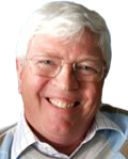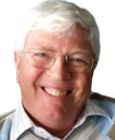Spirituality
Spiritual Maturity: The Case of Etty Hillesum Part 3 - Final Days
She is finally as spiritually mature as anyone can become.
Posted October 10, 2011
Working for the Jewish Council, set up in Amsterdam by the Nazis to maintain public order, Etty volunteered to go to Westerbork concentration camp, and served there intermittently from July 1942. She later described experiencing a rare and remarkable state of mental respite that helped her to cope: "That deepest and richest part in which I repose, is what I call ‘God'...". She also wrote, "Those two months behind barbed wire have been the two richest and most intense months of my life, in which my highest values were so deeply confirmed. I have learnt to love Westerbork."
We might wonder if she has lost her reason, but she explains the value of experiencing, "Life's innermost framework, stripped of all outer trappings." Even now, she does not think of her life's work as being fully complete, not yet, as she describes it, "A rounded whole". In July '42 she wrote, "If I knew for certain that I should die next week, I should still be able to sit at my desk and study with perfect equanimity, for I know now that life and death make a meaningful whole." This was timely, for on 15th September, the very day the Gestapo came for him, Etty's mentor, Julius Spier, died after a short illness. For her, he instantly became, "So much a part of the heaven that stretches above me that I had only to raise up my eyes to be by your side." Her grief is tempered by her profound sense of ultimate unification in the spiritual realm.

Etty's Diaries
Letters
In June 1943, Etty returned for the last time to Westerbork; now a place only of transit, where people were collected and then forwarded to extermination camps in the east. No further diaries, if she wrote them, have survived, but in numerous letters Etty comes across as compassionate, reverent, wise and often uniquely happy. Once, for example, she wrote, "I have a doctor who gets furious when I come into his office beaming. He says it's unforgivable to smile at all in times like these. I think he's wrong: what do you say?"
Her work involved helping inmates in extreme conditions. Over 10,000 people were cramped into a few buildings. Etty did not complain. Even in the face of stark horror, she continued to observe and enjoy nature and beauty: "The sky is full of birds, the purple lupins stand up so regally and peacefully, two little old women have sat down for a chat, the sun is shining on my face - and right before our eyes, mass murder... The whole thing is simply beyond comprehension."
She is fully open to the extremes of a simultaneously wonderful and terrible reality. That there is light in the darkness allows her to take an ironic tone, and this seems to express hope, not for deliverance from the ordeal she and others are facing, but from the risk of meaninglessness in their suffering.
Model of Westerbork Camp
When she cannot alter history, Etty still feels she has been chosen at least to record it with unflinching honesty: "I have told you often enough that no words and images are adequate to describe nights like these (during which the weekly ‘transport lists' of a thousand names are published). But still I must try to convey something of it to you." In a long letter dated 24th August, she continues: "If I were to say that I was in hell that night, what would I really be telling you? I caught myself saying it aloud to myself and quite soberly, ‘So that's what hell is like'... ‘God Almighty, what are you doing to us?' The words just escape me... We are being hunted to death all through Europe."
This is not so much a cry of despair as a chillingly accurate summary of the predicament of the Jewish people of the time, during which eighty-three trains carried over 90,000 Dutch people to Nazi death camps. Etty was still only twenty-eight years old when these terrible things really happened. She is not blinded by the madness and cruelty of it. She remains able always to write something positive or wise. People in the camp die of a broken spirit, she says, for example, "Because they can no longer find any meaning in life."
Her vision has become completely holistic, her words and ideas taking on a truly mystical quality: "Everywhere things are both very good and very bad at the same time. The two are in balance, everywhere and always. I never have the feeling that I have got to make the best of things; everything is fine just as it is. Every situation, however miserable, is complete in itself and contains the good as well as the bad." Surely now she is as spiritually mature as a person can become in this life.
Recommended book about Etty
Recommended book about Etty
No longer protected by the weakened Jewish Council, Etty was taken from Westerbork on 7th September 1943. She threw a final postcard from the overcrowded transport train: "Opening the Bible at random I find this: ‘The Lord is my high tower'. I am sitting on my rucksack in the middle of a full freight car. Father, Mother, and Mischa are a few cars away. In the end, the departure came without warning... We left the camp singing... Thank you for all your kindness and care."
Final words about Etty
A friend immediately wrote, "It all happened so suddenly, so unexpectedly... And when the time came she, too, was ready and waiting. And, alas, she, too, has gone. She stepped onto the platform... talking gaily, smiling, a kind word for everyone she met on the way, full of sparkling humour, perhaps just a touch of sadness, but every inch the Etty you all know so well... With what grace she and her family left! After her departure I spoke to a little Russian woman and various other protégés of hers. And the way they felt about her leaving speaks volumes for the love and devotion she had given to them all."
This letter powerfully and independently attests to Etty Hillesum's genuine faith and spiritual maturity. She was murdered in Auschwitz on 30th November 1943, yet her example lives on.
Copyright Larry Culliford
Quotations are from: An Interrupted Life: The Diaries and Letters of Etty Hillesum 1941 - 1943. Trans: Arnold J Pomerans. London: Persephone Books, 1999 (Reprinted 2007).
See also Etty Hillesum: a life transformed by Patrick Woodhouse (2009). London: Continuum.
Some photos are from The Etty Hillesum Research Centre of the University of Ghent.
Larry's books include ‘The Psychology of Spirituality', ‘Love, Healing & Happiness' and (as Patrick Whiteside) ‘The Little Book of Happiness' and ‘Happiness: The 30 Day Guide' (personally endorsed by HH The Dalai Lama).




